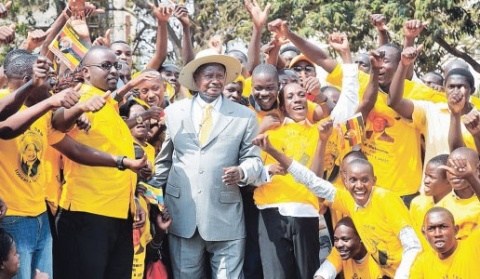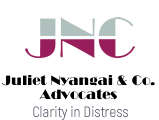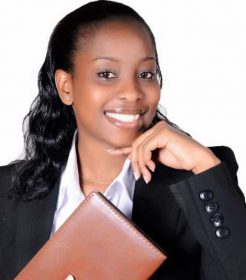
DEMOCRACY IN THE EAST AFRICAN LANDSCAPE
- 14th March 2016
- JNC Advocates
- Blog Post, Featured, Law
- Consultation, Democracy, JNC Advocates, Lawyer, Politics
- 0 Comments
Issues of Constitutionalism and Democracy seem to dominate the East African political landscape. The intrigues and capriciousness of East African politics is something of interest to not only scholars but also persons with apt interest in regional current affairs.
Although the cast in all the East African countries is different, the script is similar. Poor and despotic leadership, corruption, and electoral malpractice, among other political problems, have been common maladies in the East African countries.
Kenya could be the focal point of the East African states in terms of democratic credentials in comparison to her East African neighbors even as much as all the countries have similar denominators in the struggle to uphold constitutionalism and the rule of law.
Kenya has strong public participation including a vocal civil society, a strong opposition and media freedom. All this not devoid of functional institutions and a Constitution (2010) which enhances democracy and people’s political participation.
Last year Kenya’s High court annulled clauses of a draconian anti-terrorism law after a legal challenge by the opposition. The clauses are deemed to have sought to curb media freedom and violated civil liberties. Opposition leader, Mr. Raila Odinga stated that he was happy that the Court stood up for the Constitution.
Uganda went to the polls on the 18th of February this year. The Presidential Results of the 2016 Uganda General Election have been out rightly disputed by the opposition with claims of blatant ballot stuffing, intimidation and unequivocal rigging. This scenario can be likened to the Kenyan General Election, 2007 which precipitated unrest and civil strife.
Although Uganda has had a troubled political trajectory, with coups and a military dictatorship, Kenya and Tanzania have been relatively stable, albeit of course with political problems of their own.
The Ugandan General Election of 2016 took an interesting twist as the two main presidential contenders as unlike the Kenyan scenario came from the same tribe. Both in the 2007 and 2012 General Elections in Kenya, the two main presidential aspirants came from different ethnic factions as unlike the case in Uganda whereas the Incumbent, President Yoweri Museveni and his opponent Kizza Besigye are from the same tribe, Banyankole.
The tribe factor has always played a key role in shaping national politics in Africa. Would there have been worse escalation of chaos and utter breakdown of cosmos if the two leading Presidential contenders came from different tribes? The 2007/08 Post Election Violence in Kenya was largely deemed to be a tribal war against two major tribes in Kenya; the Agikuyu and the Luo and this especially had a historical connotation.
In Uganda, all the three main contenders, the incumbent, Kizza Besigye and Amama Mbabazi come from the same tribe as unlike the predecessors of Yoweri Mseveni; Milton Obote, Idi Amin and Olara Okello who were from Northern Uganda. Could it be that the East Africa trend of voting is a clear example of African tribal politics and ethnic chauvinism at play?
Does peace and development supersede democracy? In as much as Uganda governance is deemed as dictatorial with the incumbent now doing over thirty years in office, some people say they prefer the stability, calm and traces of development that he has brought as likened to his predecessors.
The years between 1971 and 1985 were marred with chaos, repression and the deaths of a multitude of civilians as a result of the despotic Idi Amin regime and the strife propagated by the civil war which came to be known as the Ugandan Bush War.
In the warring period, respect for human dignity, rule of law and constitutionalism was a fairy tale in Uganda thus the election of Museveni into office came as a relieve to many as he then looked as an emblem of peace and monument of stability to the war stricken state known as the Pearl of Africa.
The atrocities of Idi Amin Dada fascist regime will forever be entrenched in the minds of many. Museveni’s regime has been hailed with relative calm as compared to the past regimes. There has been infrastructural development, escalation of basic literacy due to greater number of primary school education enrolment, impressive drop of HIV Levels because of an acclaimed anti-Aids campaign spearheaded by the President.
Nonetheless critics state that a lot more could have been done in his 30 -year rule and the best thing he could have done is hand over power peacefully and not run for another term. Museveni is being accused of not only highhandedness and intolerance to the views of the opposition and critics but also resounding sleaze.
It should be noted that the greater dissent towards the regime is largely from the youth. A large populace of uneducated but unemployed youth is a hanging avalanche and thus the high level of dissent from the youth who seek change. The question is then, are the youth changing the face of politics and democracy in Africa?
In Kenya, the incumbent won a majority of youth votes by appealing to the youthful electorate in his campaigns by a promise of implementation of Article 55 of the Kenyan Constitution 2010 which states the State shall take measures, including affirmative action programmes to ensure that the youth access relevant education and training, employment and opportunities to associate, participate and be represented in political, social, economic and other spheres in life.
The case of Uganda Democracy is somehow replicated in her bordering country; Rwanda. Whilst there is commendable progress and socio-economic development, freedom of expression, stifling of human rights and dissent and amendments to the constitution to enoble continuation of the presidency are the highlights.
There are whispers that journalists, human rights defenders and members of the opposition face a repressive regime. Just like there was an amendment in 2005 in Uganda to enable the then incumbent ran for another term to prolong his 30- year presidency, the Rwandan Constitution was revised and adopted in a referendum on 18th December of 2015 and President Paul Kagame confirmed he would seek a re-election in 2017.
In as much as his critics accuse him of mutilating the Constitution to suit his tyrannical ambitions, President Paul Kagame is popular in Rwanda and is applauded for prioritizing national development and fostering peace in Rwanda.
He has launched a program to develop Rwanda as a middle income country by 2020 and is largely deemed as a very effective leader for a once war torn nation that was grappling with terror stricken citizenry and people divided by negative ethnical politics. President Kagame has aided to usher in commendable economic growth and human development.
The question then is that, Does Paul Kagame development record warrant him the constitutional amendment that allowed him to run for another third term? Is Paul Kagame the only leader that can guarantee Rwanda’s stability and development? Yes President Kagame has accomplished much for his legacy but would he leave a better legacy if there were better human rights, press freedom, respect for rule of law and constitutionalism, democratic space and ultimately a succession plan?
Any responsible leader should be building up the necessary institutions to prepare for the eventuality for an exit because after all some of the East African presidents ought to know that an established democracy is the ultimate solution for lasting peace and stability which fosters development.
In Burundi, Presidential elections were held on 21st July 2015, the electoral commission of Burundi announced President Pierre Nkurunziza won a new term in office after an election marred with violence and boycott by the opposition. The opposition stated that Nkuruzinza’s bid violated the constitution.
The president then said that he had the right to run for a third term in office because he was appointed to his first term, rather than elected. Even after a lot of urging both nationally and internationally for Nkuruzinza to abandon his attempt to run for a third term, a decision that sparked violent protests since his announcement, he went ahead and did so with disregard of the law and amidst growing dissent. What then comprises of undemocratic space even though elections are actually held? Is it better to have undemocratic and flawed elections or no elections at all?
For an election to highlight democracy, the process ought to be free, fair, transparent and credible. Many would argue that it is better not to have elections than to have flawed elections. For credible elections to be deemed so, there must not be closure of political space, shutting down of independent media, and government violent response to opposition, continued response of violence and human rights abuses, intimidation by armed militia or even government forces.
The characteristics of undemocratic space and flawed elections have been replayed in the East African states. In the Kenya 2007 Election, the disputed and premature announcement of the ‘’winner’’ in a dark room somewhere with only the state broadcaster, KBC sparked fears of rigging.
The clandestine swearing in ceremony of Mwai Kibaki seemed like a bad joke to many and a mockery of the democratic achievements garnered through the years. In Tanzania National Elections, 2015 the Opposition Chadema party said the police detained 40 of its volunteers who were tallying results whilst the police stated that the arrests were based on violations of electoral procedures.
There were reported discrepancies at some polling stations including lack of voting materials and even nullification of the presidential votes in Zanzibar due to ‘’gross violations’’ in the electoral process.
The most recent glaring electoral pseudonym can be highlighted in the East African nation of Uganda with the shut of social media sites in the voting period, the arrest and detention of Oppositon leader Kizza Besigye before, during and after the elections which was largely construed as voter intimidation, delays In the delivery of voting materials, cases of pre-marked ballot papers, unnecessary heavy military presence excessive use of force by police. European and Commonwealth observers criticized the 2016 Electoral process.
The EU observer mission stated that the Election was conducted in an intimidating atmosphere while the Commonwealth observers said the poll fell short of meeting key democratic benchmarks. For the regime supporters, many continue to hail and herald President Museveni for bringing calm and stability to Uganda after decades of chaotic leadership whilst opposition voters accuse him of alarming despotic leadership.
The irony is that Museveni once declared: “No African head of State should be in power for more than 10 years”, perhaps it is for reasons like this that British Historian, Lord Acton coined the phrase “Power tends to corrupt, and absolute power corrupts absolutely. Great men are almost always bad men.’’
Most despots start their reign with absolute good in mind and with the best interests of the citizenry in mind but what makes great men want to cling unto power? Truly the scourge of prominent tyrannical leaders who perpetuate their rule through sham elections is an outright threat to democracy and eventually long lasting stability and peace.
Rule of law, Constitutionalism and Egalitarianism ideals should be upheld to denote real democracy via the ballot. Rwanda and Kenya are countries to watch in the coming year, 2017 as the people go to the ballot to exercise their political rights.
This Article appeared in the Informer East Africa, March, 2016. UK EDITION
Ms Juliet O. Nyang’ai is an International Law Expert, Principal Partner at JNC & Co. Advocates and a Researcher on Counter-Terrorism and Organized Crime Legislation.



Leave a Reply
You must be logged in to post a comment.